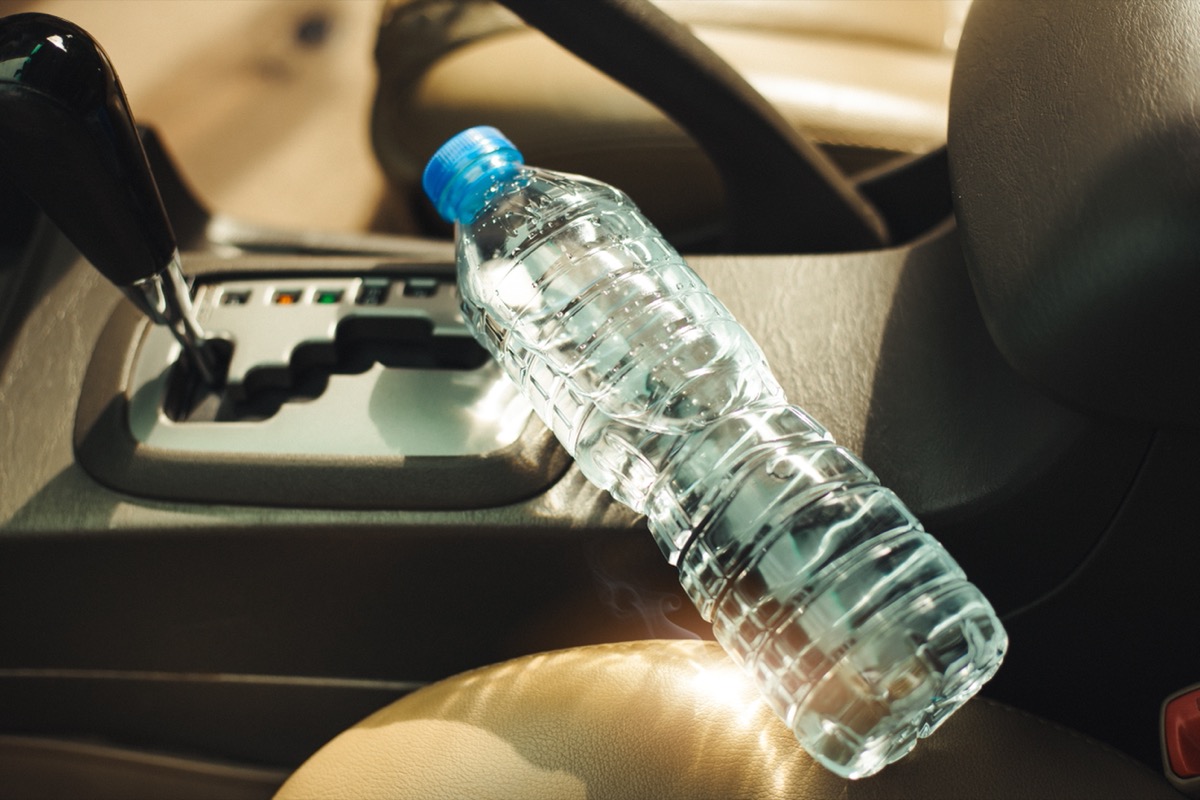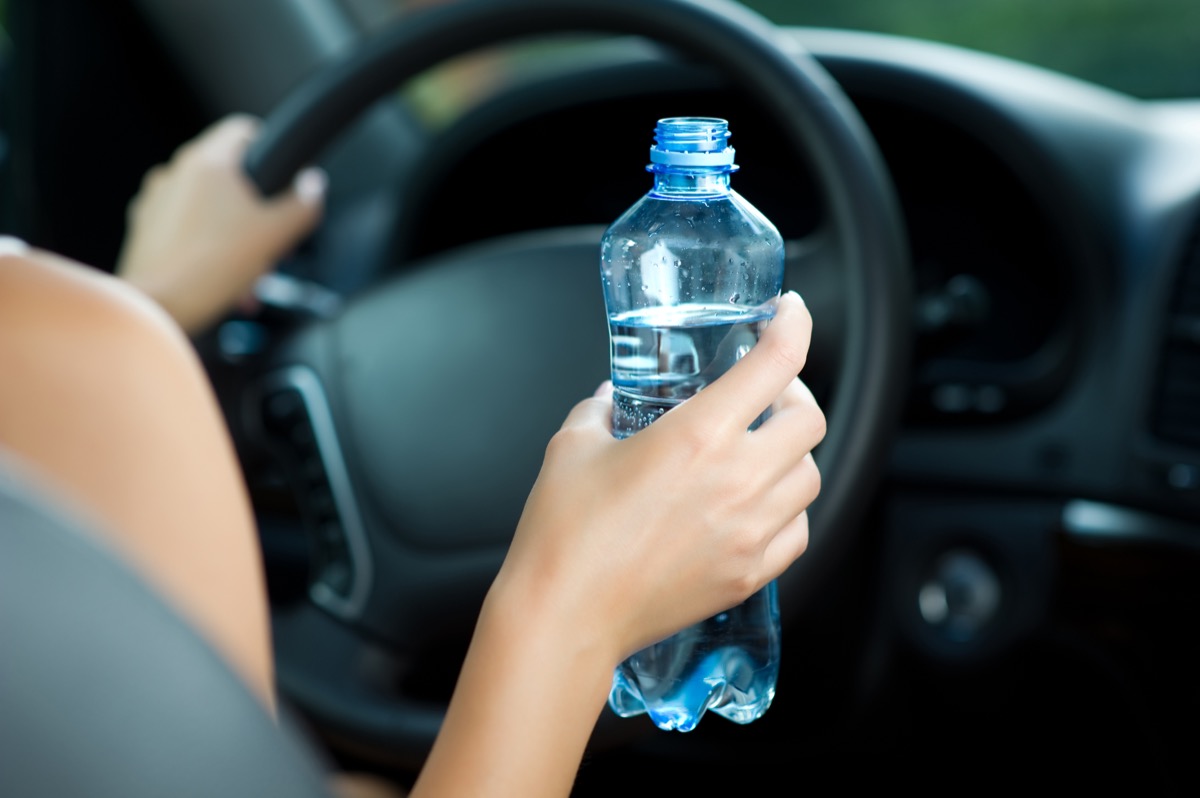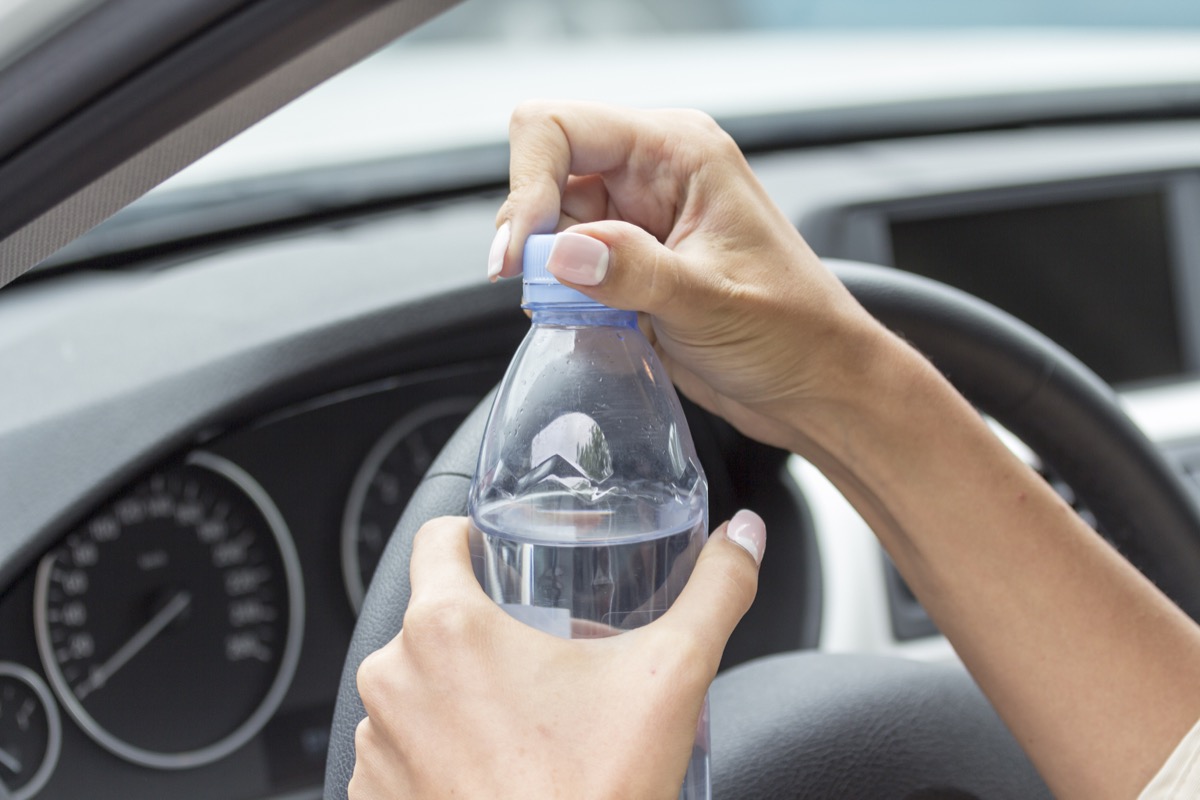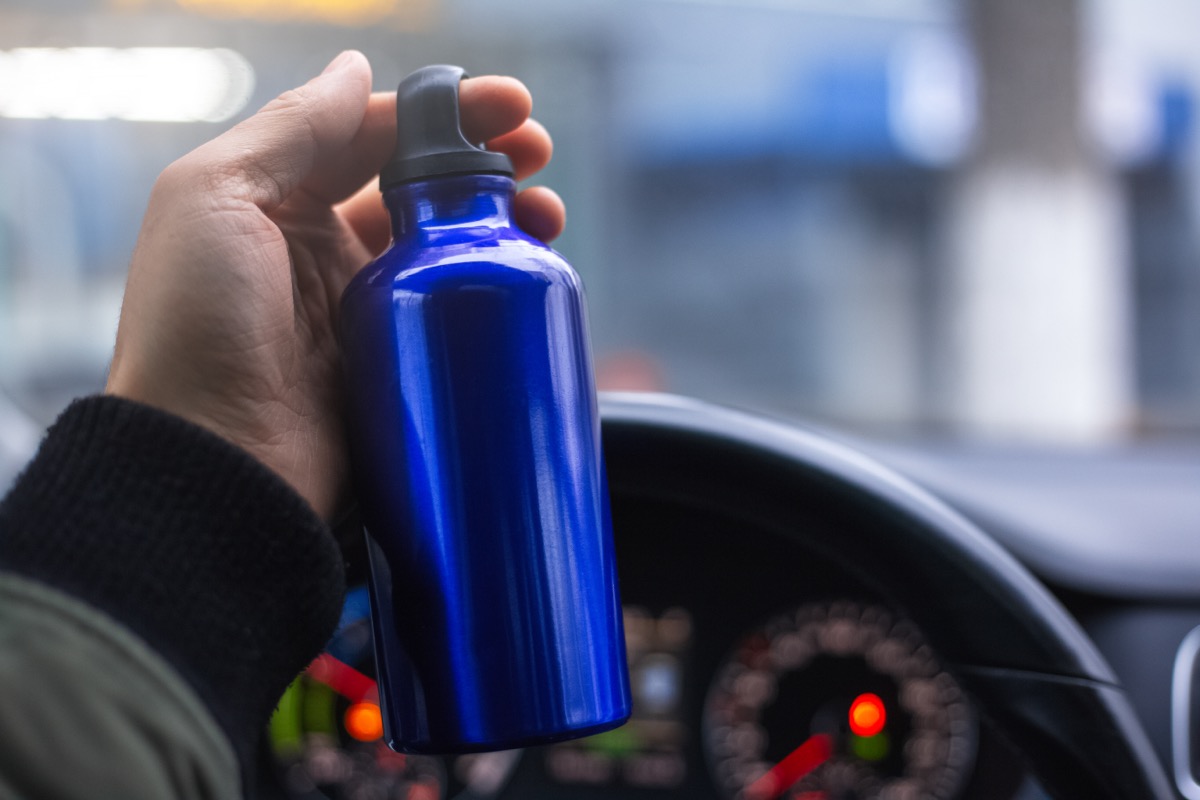If You Kept This Drink in Your Car, Don't Consume It, Experts Say
This common mistake could be putting your health in harm's way.

With spring officially here and Memorial Day weekend not far away, there's no time like the present to start planning your packing list for your next trip. However, before you start loading up your car, there's one mistake experts want you to avoid for the sake of your wellbeing: leaving a particular beverage in your car. Read on to discover why you'd be wise to sidestep this potential health danger. And for more safety risks you're better off avoiding, The CDC Is Warning You Not to Eat Anything Made by This Company.
Experts caution against keeping disposable plastic water bottles in your car in the heat.

While staying hydrated is essential, especially during warmer months when you're more prone to dehydration due to sweating, keeping plastic bottles in your car for prolonged periods of time may cause the water inside to become contaminated.
"A commonly quoted 2014 study found antimony and bisphenol A (BPA) leached into water when left at 158 degrees Fahrenheit for four weeks. The amount of BPA in the water increased with time up to its highest amount in four weeks," explains Kelsey Lorencz, RD, a dietitian at Graciously Nourished. "If you find a bottle rolling around on the floor that's been in your car for a few weeks over the summer, it might be best to toss that one in the recycle bin."
And for more health and safety news delivered straight to your inbox, sign up for our daily newsletter!
BPA and antimony have been linked to a number of adverse health effects.

According to a 2019 report published by U.S. Department of Health and Human Services' Agency for Toxic Substances and Disease Registry (ATSDR), antimony is "reasonably anticipated to be a human carcinogen." A 2009 study published in the Indian Journal of Occupational & Environmental Medicine noted that, in particular, "antimony poses both acute and chronic health effects in drinking water."
A 2016 study published in the journal Reproductive Toxicology also proposes that "BPA may be reasonably anticipated to be a human carcinogen in the breast and prostate." The compound has also been deemed an endocrine disruptor by a 2015 study published in PLOS One, among others.
If your water has only been in the car a short time, it's probably safe to drink.

Though you might not want to drink from a plastic water bottle that's been in your hot car for weeks, if that bottle has been in your vehicle under more temperate conditions or for a shorter period of time, you likely don't have to worry about its safety.
"If you're leaving your water in the car for a few hours, the amount of BPA that will leach will likely be negligible, and not do much to harm your health," explains Lorencz. And if you want to protect your health, The CDC Says If You See This at a Restaurant, Don't Go Inside.
Drinking from opened bottles can also pose a serious health risk.

It's not just plastic bottles that have been left in hot cars for weeks at a time that can present serious health hazards—opened bottles left in the car could be putting you in harm's way, too.
"You should never drink from a bottle that's been once opened and closed and left in a hot space, since it's a perfect environment for different bacteria to grow," explains Kristina Hendija, MD, a medical advisor for Beardoholic.
Certain water bottles are safer choices for the car than disposable plastic ones.

If you do intend to keep a water bottle in your car during the summer, there are plenty of ways to make doing so safer.
"Squeezable bottles, like a bicycle water bottle, are made from low-density polyethylene and they do not have the biphenyl leaching problem. Many of these bottles are made from medical-grade plastic and are generally offer the best combination of safety, cleanliness, and durability," explains Waqas Ahmad Buttar, MBBS, a physician with Sachet Infusions.
According to a 2011 study published in Chemosphere, the use of unlined stainless steel, copolyester-lined aluminum, and copolyester-lined plastic also helped mitigate the risk of BPA leaching into a water bottle's contents. And if you're eager to play it safe this summer, check out The Riskiest Things You're Doing After You're Vaccinated, CDC Says.





















